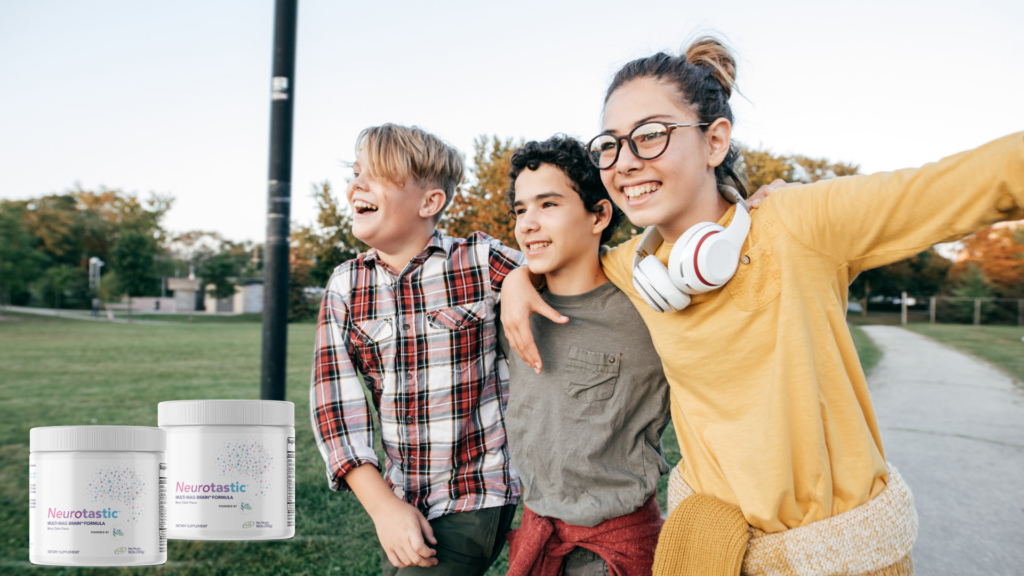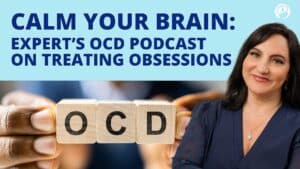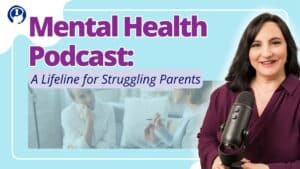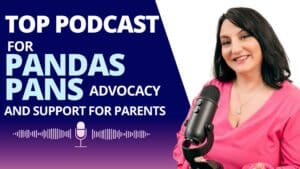In today's fast-paced world, stress and anxiety have become common challenges, especially for parents navigating the complexities of raising children and teens with behavioral and mental health issues. Amidst various treatments and therapies, Magnesium L-Threonate emerges as a natural, effective solution for managing anxiety.
Magnesium can help alleviate stress and anxiety, providing a ray of hope for parents seeking safe and natural ways to support their children's mental well-being.
Why Magnesium L-Threonate for Anxiety?
Magnesium L-Threonate is a unique form of magnesium known for its ability to cross the blood-brain barrier effectively. This characteristic allows it to influence brain function directly, including areas related to mood regulation and stress response.
Its role in modulating neurotransmitters and stress hormones makes it an ideal choice for addressing anxiety disorders and improving cognitive function.
Low Magnesium and Anxiety
Studies have shown a correlation between low levels of magnesium and heightened anxiety and stress.
Magnesium deficiency can disrupt the balance of neurotransmitters in the brain, exacerbating symptoms of anxiety and affecting overall brain function. Thus, maintaining adequate magnesium levels is crucial for mental health, especially in managing anxiety disorders.
How Magnesium Impacts Neurotransmitters and Stress Hormones
Magnesium's influence on the brain's chemical messengers, or neurotransmitters, is profound and multifaceted. This essential mineral aids in the regulation of neurotransmitters, which are crucial for communication between nerve cells in the brain.
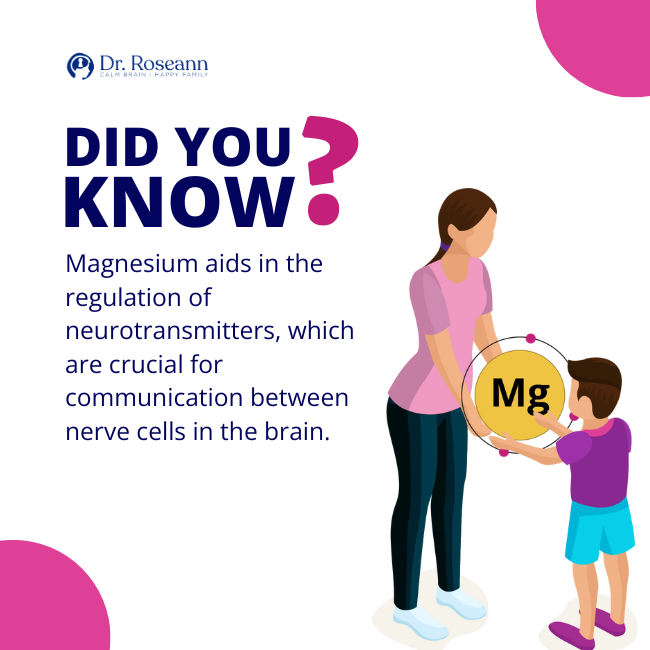
It plays a vital role in both the release and absorption of these neurotransmitters. This regulation is especially important for neurotransmitters like serotonin and dopamine, which directly affect mood, anxiety levels, and overall mental well-being.
Moreover, magnesium's role extends to moderating the body's stress response. It acts as a natural control for the secretion of stress hormones, such as cortisol, which are produced by the adrenal glands. By managing cortisol levels, magnesium helps in reducing the physiological impact of stress, leading to a more balanced emotional state. This calming effect is not just psychological but also physical, as magnesium aids in relaxing muscles and reducing tension throughout the body.
The interplay between magnesium and these neurological processes is critical. Adequate levels of magnesium can support a more harmonious balance of neurotransmitters and stress hormones, leading to improved mood regulation, reduced feelings of anxiety, and a greater sense of calm and relaxation.
This underscores the importance of magnesium, particularly Magnesium L-Threonate, in managing anxiety and stress, especially for children and teens dealing with mental health challenges.
What Does the Research Say About Magnesium L-Threonate for Anxiety?
Research into Magnesium L-Threonate has shown promising results in reducing symptoms of anxiety.
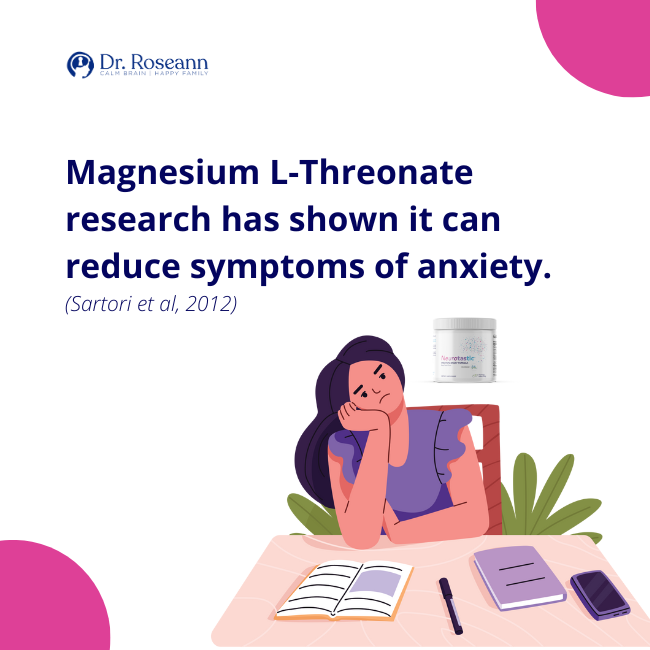
Studies indicate that this form of magnesium, due to its ability to penetrate the brain barrier, can more effectively improve symptoms of anxiety compared to other forms of magnesium (Sartori et al, 2012).
It supports brain health and function, which is essential for managing mental health conditions.
How Much Magnesium L-Threonate for Anxiety?
Determining the right dosage of Magnesium L-Threonate for anxiety is crucial, as it varies depending on age, individual needs, and specific health conditions. Generally, for managing anxiety, the dosage recommendations for Magnesium L-Threonate can be different from other forms of magnesium due to its unique properties and high bioavailability.
For children and teens, it's essential to start with a lower dose and gradually increase it, always under the guidance of a healthcare professional. Typically, studies involving Magnesium L-Threonate suggest dosages in the range of 150 to 200 mg per day for children and up to 300 to 400 mg per day for teenagers. However, these are general guidelines and may not be suitable for everyone.
For adults, the recommended daily dosage can vary from 400 to 2000 mg, divided into two or three doses throughout the day. This range accounts for differences in individual needs and tolerances. It’s essential to note that higher dosages should be approached with caution and under medical supervision, as excessive intake can lead to side effects like gastrointestinal discomfort.
It's also important to consider that the effectiveness of Magnesium L-Threonate in managing anxiety symptoms might not solely depend on the dosage but also on consistent and regular intake over a period of time. The body’s magnesium levels typically don't change rapidly, so consistent supplementation is key for achieving the desired effects.
As with any supplement, consulting with healthcare professionals before starting Magnesium L-Threonate, especially for children and teens, is essential. They can provide personalized advice and monitor for any potential interactions with other medications or health conditions.
Best Time to Take Magnesium L-Threonate for Anxiety?
Timing can be crucial when taking Magnesium L-Threonate for anxiety. Some find it beneficial to take it in the evening, as it can promote relaxation and improve sleep quality, which is often disrupted in individuals with anxiety.
However, the best time may vary based on individual responses, so it’s important to experiment and see what works best for your child.
How Quickly Can Magnesium L-Threonate Support Anxiety
The effects of Magnesium L-Threonate on anxiety can vary. Some individuals may notice improvements in a matter of hours or days, while for others, it might take longer to observe significant changes. Consistency is key, and it’s important to maintain regular supplementation to see the full benefits.
Magnesium L-Threonate for Anxiety
Magnesium L-Threonate offers a natural and effective approach to managing anxiety, especially for children and teens facing mental health challenges. By supporting brain function and regulating neurotransmitters and stress hormones, this supplement can play a significant role in improving mental health and cognitive function.
As with any supplement, it’s vital to consult with healthcare professionals to ensure its suitability for your child and to determine the appropriate dosage and timing. With the right approach, Magnesium L-Threonate can be a valuable addition to your child’s wellness routine, contributing to a calmer, more balanced state of mind.
Magnesium L-Threonate can be your next step to starting with natural solutions and it can help improve your child’s or teen’s stress and anxiety.
Citations:
Gendle, M., & O’Hara, K. (2014). Oral Magnesium Supplementation and Test Anxiety in University Undergraduates. Journal of Articles in Support of the Null Hypothesis, 11(2). https://www.jasnh.com/pdf/Vol11-No2-article2.pdf
Greenblatt, J. (2016). Magnesium: The Missing Link in Mental Health? https://finallyfocused.org/wp-content/uploads/2022/02/Magnesium-the-Missing-Link.pdf
Kirkland, A., Sarlo, G., & Holton, K. (2018). The Role of Magnesium in Neurological Disorders. Nutrients, 10(6), 730. https://doi.org/10.3390/nu10060730
Mousain-Bosc, M., Roche, M., Polge, A., Pradal-Prat, D., Rapin, J., & Bali, J. P. (2006). Improvement of neurobehavioral disorders in children supplemented with magnesium-vitamin B6. I. Attention deficit hyperactivity disorders. Magnesium research, 19(1), 46–52. https://pubmed.ncbi.nlm.nih.gov/16846100/
Sartori, S. B., Whittle, N., Hetzenauer, A., & Singewald, N. (2012). Magnesium deficiency induces anxiety and HPA axis dysregulation: Modulation by therapeutic drug treatment. Neuropharmacology, 62(1), 304–312. https://doi.org/10.1016/j.neuropharm.2011.07.027
Vink R, Nechifor M, editors. Magnesium in the Central Nervous System [Internet]. Adelaide (AU): University of Adelaide Press; 2011. Available from: https://www.ncbi.nlm.nih.gov/books/NBK507264/
Are you looking for SOLUTIONS for your struggling child or teen?
Dr. Roseann and her team are all about science-backed solutions, so you are in the right place!
Grab your complimentary copy of
147 Therapist-Endorsed Self-Regulation Strategies for Children: A Practical Guide for Parents
You can get her books for parents and professionals, including: It’s Gonna Be OK™: Proven Ways to Improve Your Child’s Mental Health, Teletherapy Toolkit™ and Brain Under Attack: A Resource For Parents and Caregivers of Children With PANS, PANDAS, and Autoimmune Encephalopathy.
If you are a business or organization that needs proactive guidance to support employee mental health or an organization looking for a brand representative, check out Dr. Roseann’s professional speaking page to see how we can work together.
Dr. Roseann is a Children’s Mental Health Expert and Licensed Therapist who has been featured in/on hundreds of media outlets including The Mel Robbins Show, CBS, NBC, PIX11 NYC, Today, FORBES, CNN, The New York Times, The Washington Post, Business Insider, Women’s Day, Healthline, CNET, Parade Magazine and PARENTS. FORBES called her, “A thought leader in children’s mental health.”

She coined the terms, “Re-entry panic syndrome” and “eco-anxiety” and is a frequent contributor to media on mental health.
Dr. Roseann Capanna-Hodge has three decades of experience in working with children, teens and their families with attention-deficit hyperactivity disorder (ADHD), autism, concussion, dyslexia and learning disability, anxiety, Obsessive Compulsive Disorder (OCD), depression and mood disorder, Lyme Disease, and PANS/PANDAS using science-backed natural mental health solutions such as supplements, magnesium, nutrition, QEEG Brain maps, neurofeedback, PEMF, psychotherapy and other non-medication approaches.
She is the author of three bestselling books, It’s Gonna Be OK!: Proven Ways to Improve Your Child's Mental Health, The Teletherapy Toolkit, and Brain Under Attack. Dr. Roseann is known for offering a message of hope through science-endorsed methods that promote a calm brain.
Her trademarked BrainBehaviorResetⓇ Program and It’s Gonna be OK!Ⓡ Podcast has been a cornerstone for thousands of parents facing mental health, behavioral or neurodevelopmental challenges.
She is the founder and director of The Global Institute of Children’s Mental Health, Neurotastic™Brain Formulas and Dr. Roseann Capanna-Hodge, LLC. Dr. Roseann is a Board Certified Neurofeedback (BCN) Practitioner, a Board Member of the Northeast Region Biofeedback Society (NRBS), Certified Integrative Mental Health Professional (CIMHP) and an Amen Clinic Certified Brain Health Coach. She is also a member of The International Lyme Disease and Associated Disease Society (ILADS), The American Psychological Association (APA), Anxiety and Depression Association of America (ADAA) National Association of School Psychologists (NASP), International OCD Foundation (IOCDF).
© Roseann-Capanna-Hodge, LLC 2023

